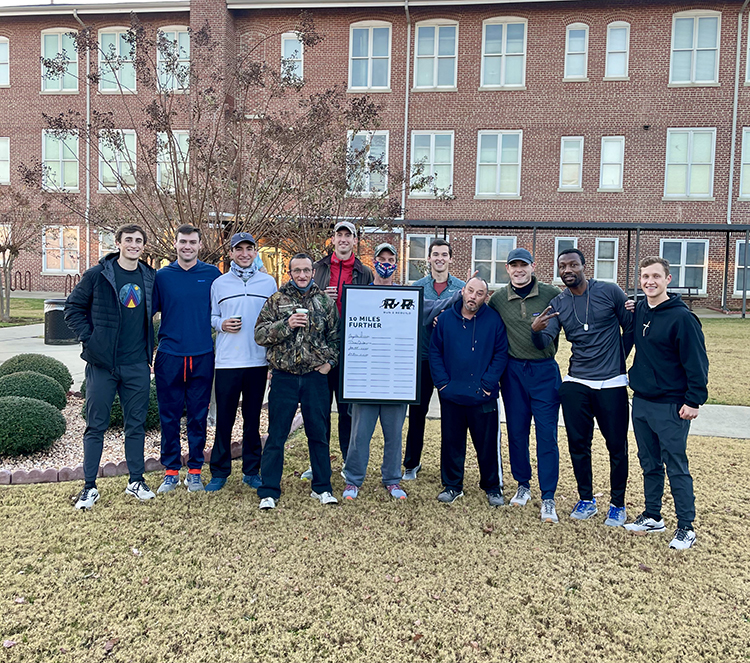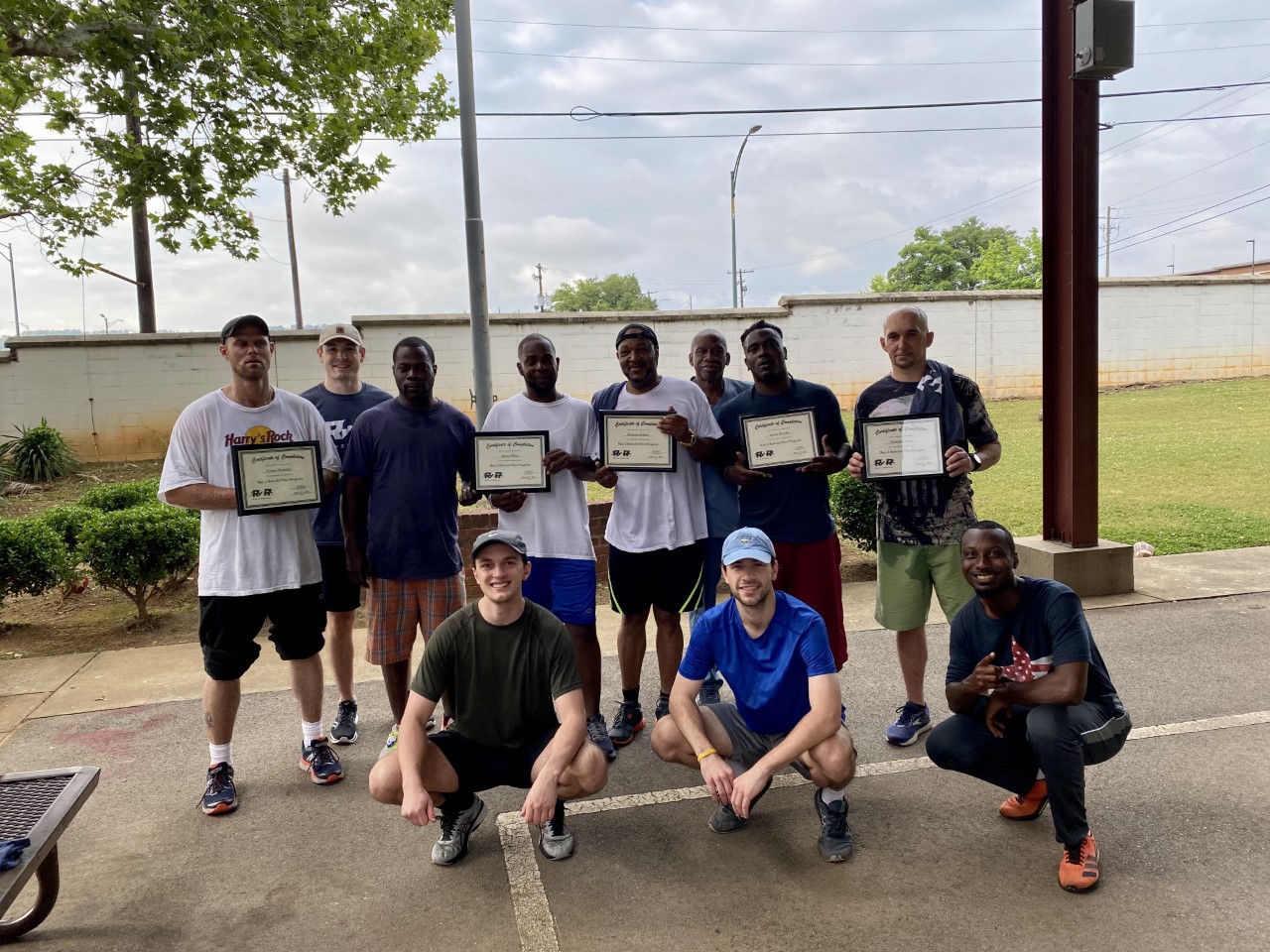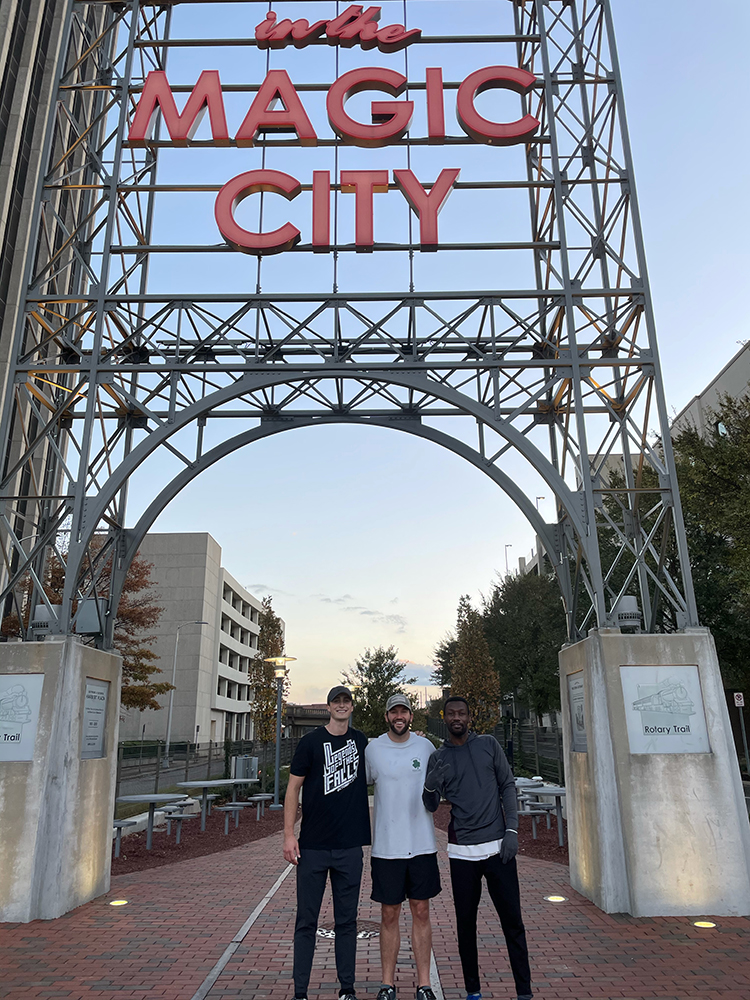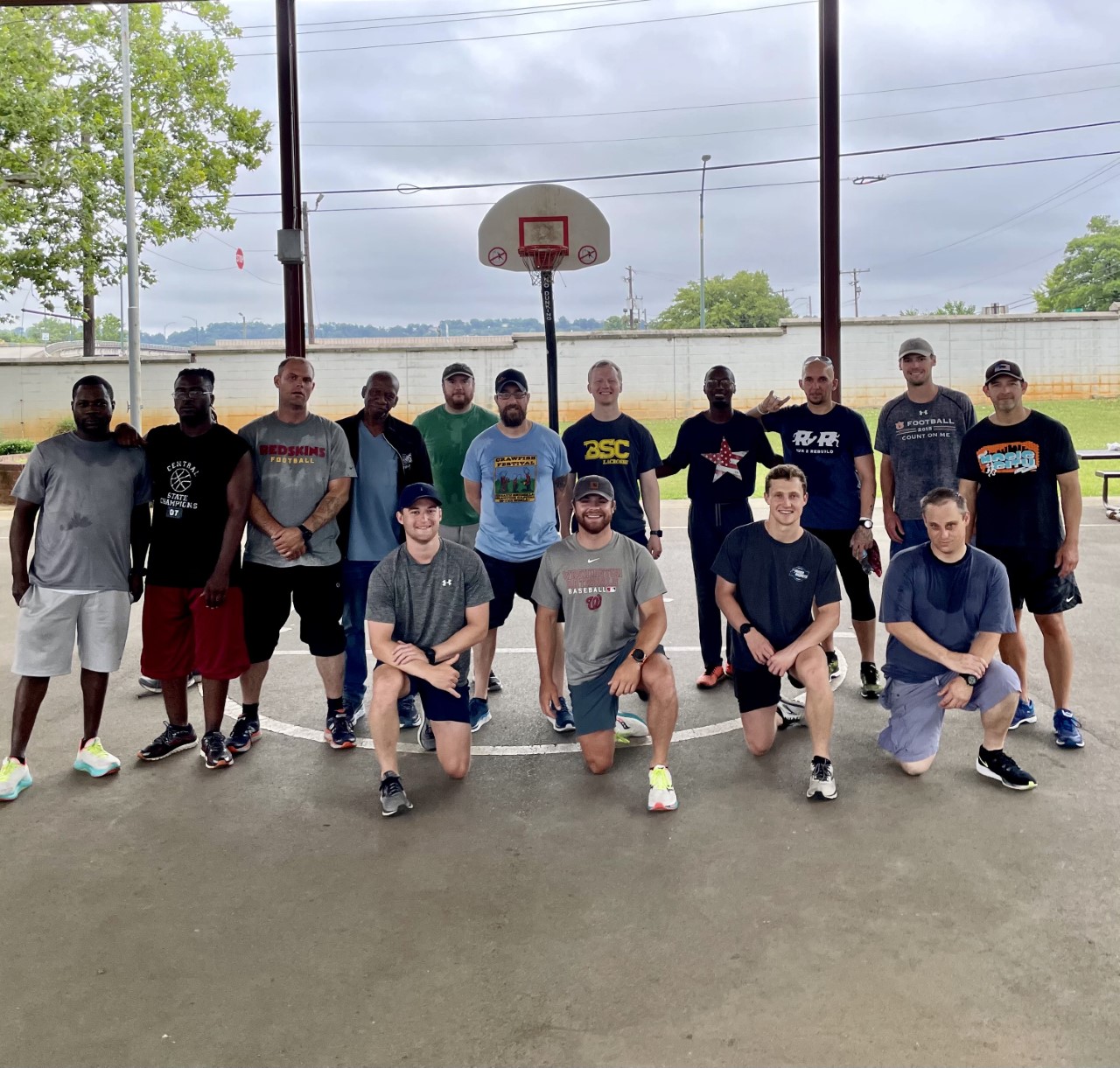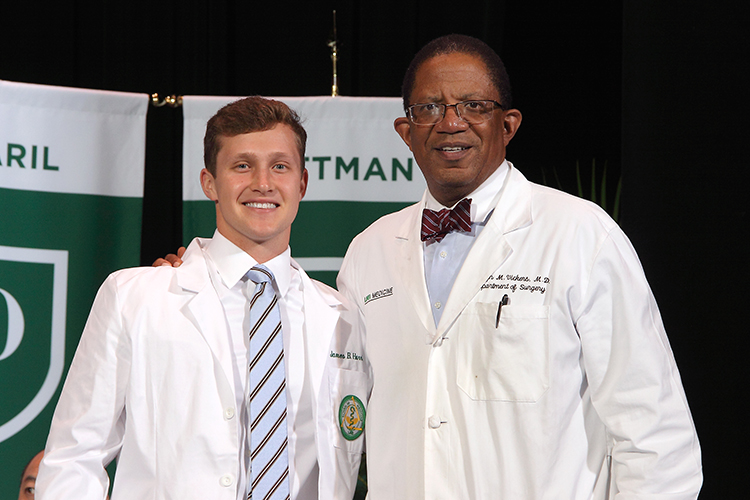
During 2020, in the height of the coronavirus pandemic, health disparities were more illuminated nationally than ever before, and opportunities overflowed for community outreach.
For one group of interdisciplinary students, a need was recognized among one of Birmingham’s most marginalized populations—those affected by homelessness.
In the fall of 2020, James Harris, MS3, was compelled by the uncertainties of the pandemic to find ways to help homeless populations in Birmingham.
Homelessness has been on the rise for several years across the country. As of January 2020, Alabama estimated having 3,351 individuals experiencing homelessness on any given day, as reported by Continuums of Care to the U.S. Department of Housing and Urban Development and published by the United States Interagency Council on Homelessness. Of that total, 267 were family households, 329 were veterans, 175 were unaccompanied young adults aged 18-24 years old, and 503 were individuals experiencing chronic homelessness.
The Economic Roundtable predicts that over the next four years, the “current Pandemic Recession is projected to cause chronic homelessness to increase 49 percent in the United States.”
Rebuilding lives through running
To combat the emotional, mental, and physical needs of the homeless population in Birmingham, Harris—along with a few of his Auburn University alumni peers Jordan Carr, Garrett Rogers, and Jesse Westerhouse—started Run 2 Rebuild, an organization that provides a support network, motivation, and physical fitness education to the men of Jimmie Hale Mission (JHM).
Harris says each of the founding members have a passion for running. “We have seen the beneficial traits that develop from this activity and the way it positively affects all areas of our lives.”
“We wanted to find a way to share this passion and make an impact on individuals facing addiction or homelessness in Birmingham,” Harris says. Run 2 Rebuild recruits men at the JHM for a month-long running commitment.
“Our ultimate goal is to use running, goal setting, and camaraderie to help others reach their full potential in all areas of life. We began conversations with Michael Coleman, the director of Jimmie Hale Mission, in September, and we officially launched a Pilot Program in early November.”
Each person enrolled in Run 2 Rebuild is asked to dedicated two mornings a week to run with the group. Harris explains that a few men enrolled in the initial month-long program have continued running with the group after they completed their first month. “As of April, we have had over fifteen runners from Jimmie Hale Mission,” he explains. “The current volunteer base is over twenty men who commit to run one morning per week. Morning volunteer shifts can vary but we try to have at least one volunteer per runner.”
The one to one ratio helps establish community and build relationships within the group—which is a main priority for the organization. The group currently has 10 runners from JHM committed for the month of June.
Jackson Harbarger, who is currently a student in the UAB School of Dentistry, recently stepped up to help lead the group and serves as the program launch coordinator when new runners begin each month.
The current volunteers from UAB include:
James Harris, MS3
Jordan George, MS3
Joseph Willis, MS3
Kurt DeLay, MS3
Vince Bonner, MS4
Matt Young, MS2
Scott Simmons, MS2
Jackson Harbarger, School of Dentistry
Drew Douthit, School of Dentistry
David Loveless, School of Dentistry
Fostering encouragement through milestones

The group makes it a priority to acknowledge and celebrate when running milestones—like 10, 25, or 50 total miles—are achieved by participants. Current scientific studies published in PLoS One and by the American Psychological Association are exploring the relationship between encouragement, motivation, and success—hypothesizing that encouragement and motivation solicit long-lasting brain emotional responses.
Run 2 Rebuild uses “Miles Further” boards for clients to sign to recognize when they hit a certain cumulative distance and to track milestones.
“It is very rewarding to watch these men progress throughout the month. We ask them to set goals at the beginning and we make sure to celebrate each goal accomplished, encouraging them to continue setting higher goals,” Harris explains.
The volunteers have contacted several local businesses and individuals to seek philanthropic donations and services. Harris says those donors have helped make the program a reality.
For example, The Trak Shak has generously donated shoes to the clients, so that a lack of running shoes is not a concern. Mel Cosio, P.T., DPT, a recent graduate from the UAB Physical Therapy program, designed a full stretching routine for JHM clients to follow. “We go through this routine each morning before we run to prevent injuries and establish healthy habits,” Harris says.
Propelled by the pandemic
When asked what it was like to develop this program during a global pandemic, Harris remarks that COVID-19 has been quite the challenge. When they launched the program, the mask mandates in Alabama and Jefferson County required each person to wear a mask while running—no easy feat for any runner, but especially first-time runners.
“Although times have been challenging, the COVID-19 pandemic actually propelled us to create an opportunity like this for individuals in homeless shelters because we recognized the need for nourishment of the mind, body, and soul for people struggling during this time.”
Finding fulfillment through connection
Harris, who has an early interest in surgery, says this project has provided immense fulfillment in both his academic career and his personal life. “Building relationships with these men and providing support and motivation have been our goals from day one. I have been extremely blessed with the new friendships that I have formed through this program.”
“Many of these men have incredible stories and it is amazing to hear them open up and share great memories, struggles, and everything in between with us during our runs. My fulfillment comes from knowing that I can play a small role in helping these men achieve their goals and then use the traits that they develop through running to enhance other areas of their lives.”
